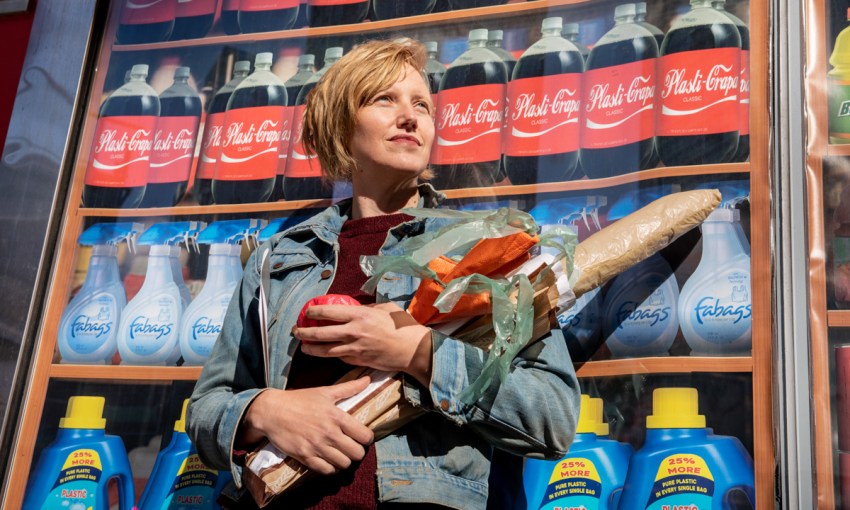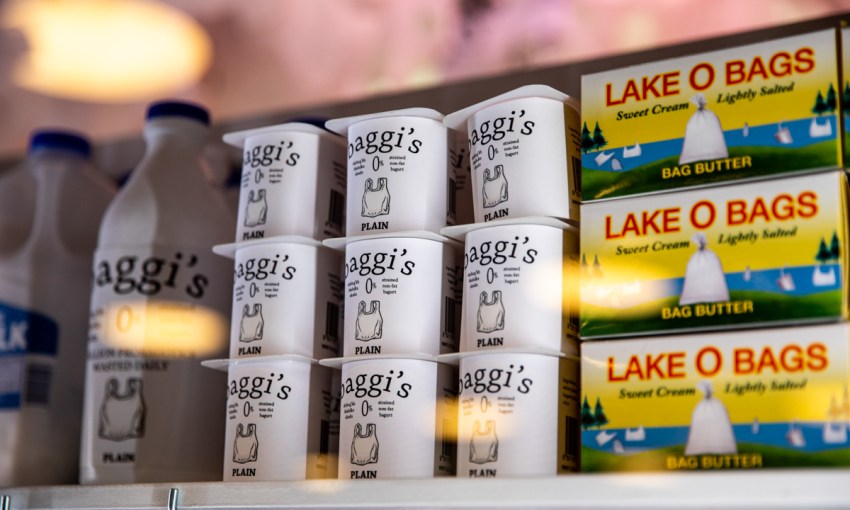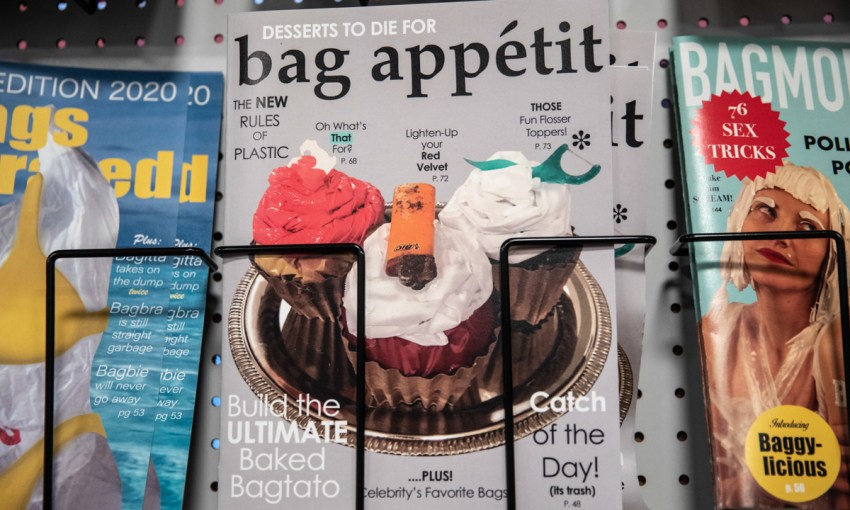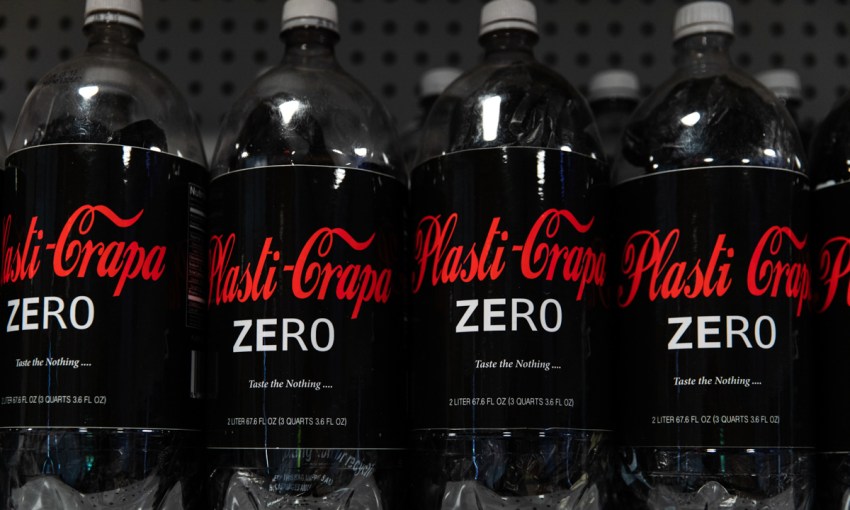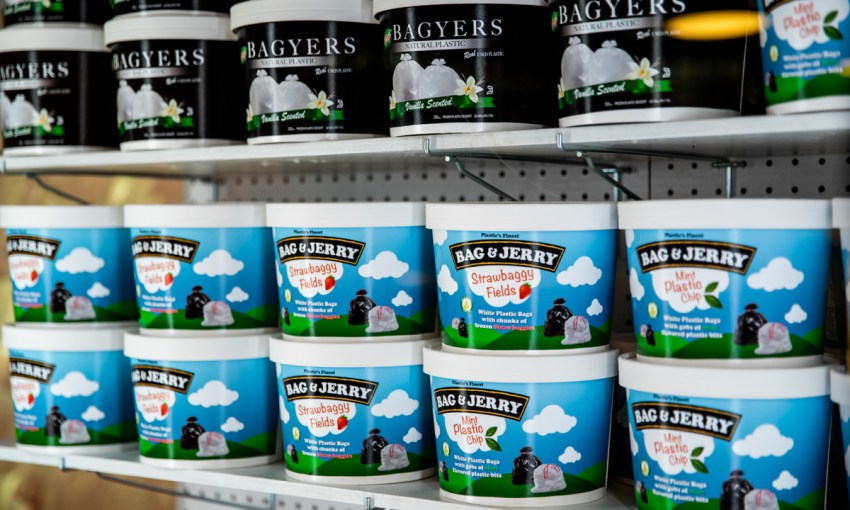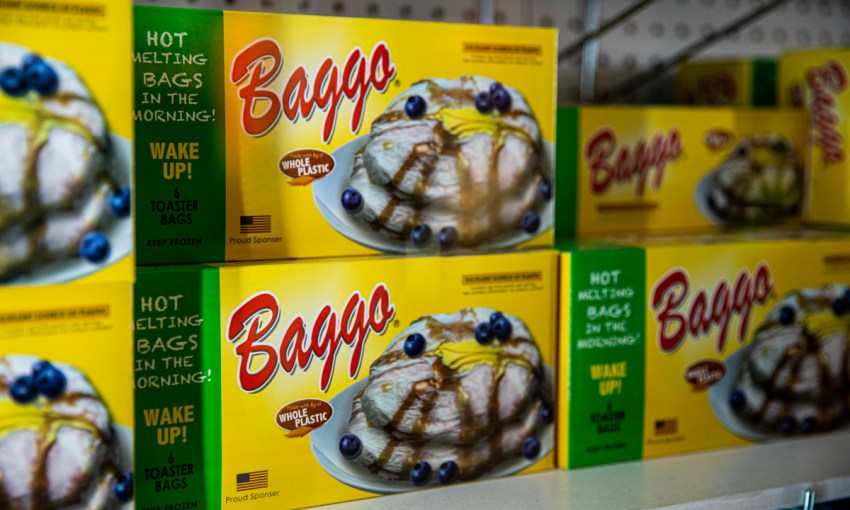With art installation The Plastic Bag Store, Robin Frohardt hopes to make the fight against the destructive reality of our plastic culture a little less depressing.
The many lives and lifetimes of plastic
The idea behind The Plastic Bag Store first came to New York artist Robin Frohardt in a quotidian moment at her local shops.
Plastic Bag Store
23 February—14 March
level 1, Rundle Place
77—91 Rundle Mall, Adelaide 5000
Mon—Thu: 12pm ’til 5pm
Friday: 12pm ’til 5:30pm
Saturday: 12pm ’til 4pm
Sunday: 12pm ’til 4:30pm
More info
Tickets to the FREE immersive experience and tour
This article was first published in print for CityMag’s 2021 Festivals Edition, on streets now.
“Watching someone bag and double-bag all my products that were already in bags, I just thought it was very silly,” Robin says.
“I thought I would take that silly, absurd feeling and turn it up to 11 by highlighting the ridiculousness of it.”
The Plastic Bag Store is open to the public at level 1 of Rundle Place. The installation is made to look like a regular grocery store, but instead of fruit, vegetables and pantry staples, everything is made from plastic.
There are bottles of Bagorade, boxes of Yucky Shards breakfast cereal, and tomatoes “sourced locally from red plastic bags and small green plastic bags”.
The Plastic Bag Store also features a puppetry play about the immortal lives of all the plastic humans have ever produced. The work imagines what future generations might think of the objects we so cavalierly threw away.
“I realised this plastic stirrer I used to put creamer in my coffee in 1995 might be out there somewhere,” Robin says.
“Someone, thousands of years from now, if they find it, they might misinterpret what it was… That seemed like a comedy goldmine, this misidentification of objects in the future.”
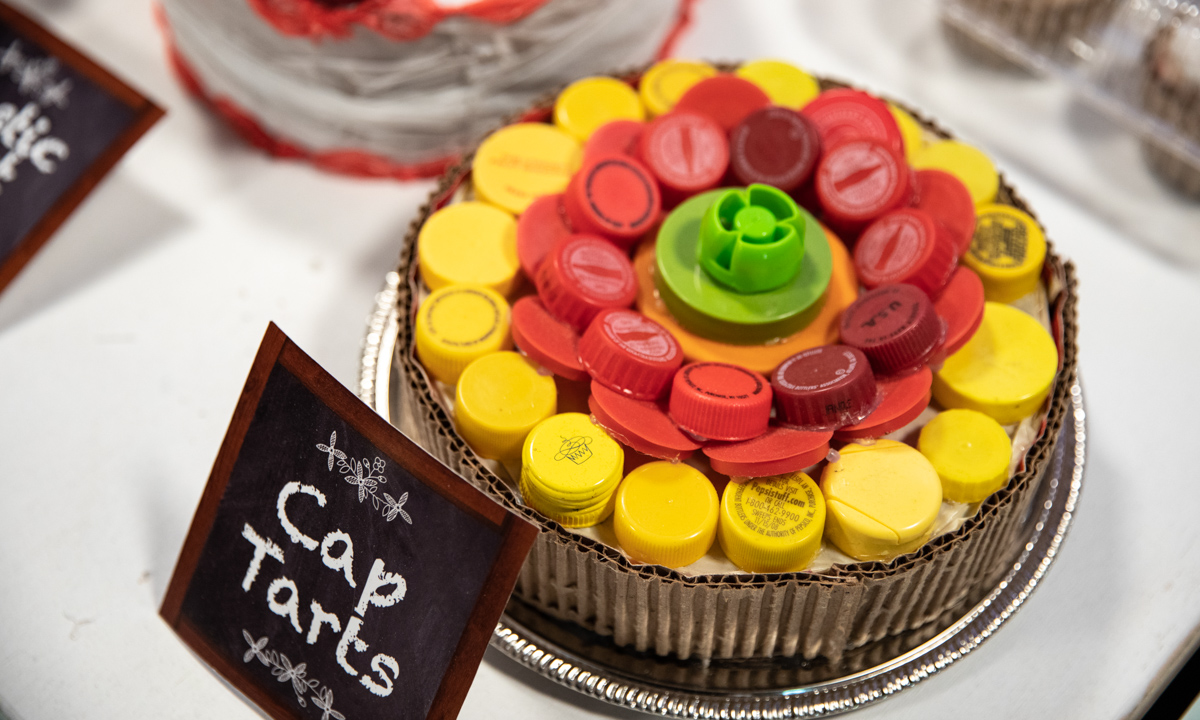
Conversations around consumption and waste can make taking positive action seem insurmountable. The consequences of our disposable culture are unavoidably depressing.
Robin hopes The Plastic Bag Store’s light tone will help the environmental message cut through.
“I definitely am not interested in preaching at people or telling people what to do, or bumming people out,” she says.
“People sometimes look at images of plastic in the ocean or sealife choking on plastic bags, and it’s a bit too much, and so there’s a tendency to turn away or swipe past. It can be kind of overwhelming.
“My work is a little bit more humorous and engaging and colourful and a little more playful. So my hope is that it’s something that people engage with intentionally. Instead of feeling overwhelmed and depressed, they’re sort of amused by it, so then they sit with these ideas for longer.”



